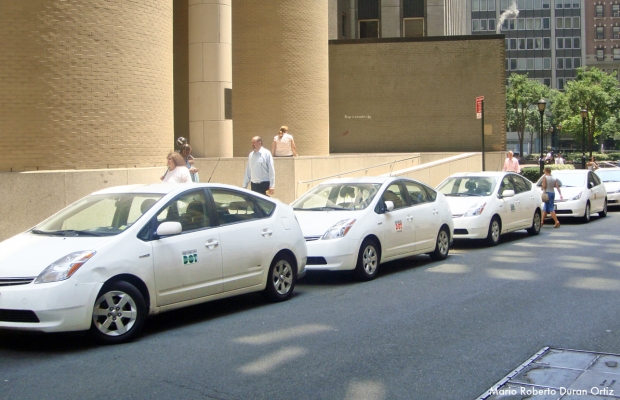Fleet managers can benefit from buying electric vehicles under certain conditions, according to a research paper by Portland State University associate professor Miguel Figliozzi. The paper marks OTREC’s first electric vehicle-related research accepted for publication in a peer-reviewed journal.
In the paper, set for publication in the Transportation Research Record, Figliozzi presents a vehicle replacement model that compares the benefits of conventional and electric vehicles under various scenarios. Incorporating electric vehicles makes the most sense for heavily used fleets when gasoline prices are high, assuming electric vehicle tax credits continue.
Until their purchase price drops, electric vehicles won’t make financial sense for fleet managers without some incentives. “Tax credits are important, especially at the beginning, given the higher price of EVs,” Figliozzi said. “The federal tax credit is roughly 20 percent of the (Nissan) Leaf’s list price and it makes a difference.”
The model presented in the paper shows that fleets will start to include a few electric vehicles with gas at $4.10 per gallon, assuming the existing tax...
Read more
